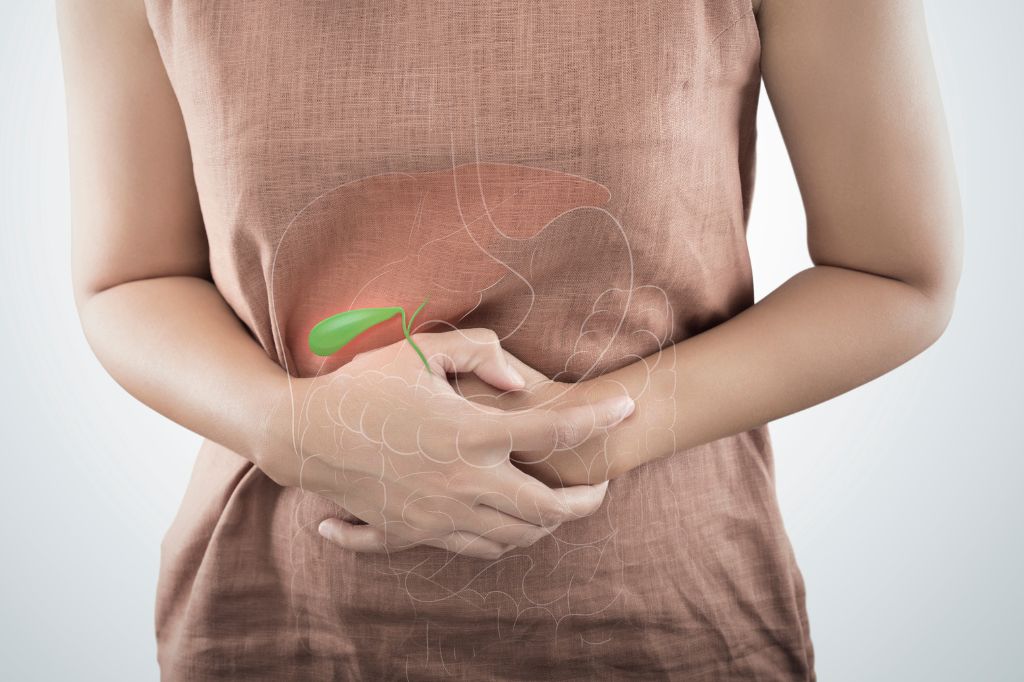Symptoms of Gastroparesis
Gastroparesis is a condition where your stomach cannot empty itself properly. Common symptoms include nausea, vomiting, feeling full quickly after starting to eat, bloating, abdominal pain, and weight loss. These symptoms can make eating and digestion uncomfortable and may lead to poor nutrition.

What Is Gastroparesis?
Gastroparesis is a problem with the way your stomach muscles work. Normally, your stomach contracts to move food into your small intestine. With gastroparesis, these muscles slow down or stop working. Food stays in the stomach longer than it should, which causes uncomfortable symptoms. The cause of gastroparesis remains unclear.1
Symptoms
The symptoms of gastroparesis often start gradually. At first, you may only notice mild discomfort after eating. Over time, the symptoms can get worse and affect your daily life.2
Feeling Full Quickly
One of the first signs of gastroparesis is feeling full sooner than normal. You might feel like you cannot finish a regular meal, even if you have only eaten a small amount. This feeling is called “early satiety.”
Bloating
Many people with gastroparesis notice bloating after eating. This is a feeling of tightness or swelling in your stomach. Bloating can make your abdomen look larger and feel uncomfortable.
Main Symptoms
As the condition progresses, symptoms often become more obvious and troublesome.
Nausea and Vomiting
Nausea is very common in gastroparesis. You may feel sick to your stomach, especially after eating. Vomiting can happen when food sits in the stomach for too long. The vomit may look like undigested food from a previous meal.
Abdominal Pain
Some people experience pain or discomfort in the upper part of the stomach. This pain can come and go, and it often gets worse after eating.3
Loss of Appetite
Because eating makes you feel unwell, you may not want to eat as much as usual. A loss of appetite is common. This can lead to unintentional weight loss over time.
Weight Loss
If you are unable to eat enough food because of symptoms, you may start losing weight without trying. Unplanned weight loss is always a concern and should be discussed with your doctor.
Not everyone with gastroparesis has the same symptoms. Some people may notice other problems, including:
Heartburn
Some people experience heartburn, which is a burning feeling in the chest. This happens when stomach contents move backward into the esophagus.
Changes in Blood Sugar
If you have diabetes, gastroparesis can make it harder to control your blood sugar levels. When food moves slowly from your stomach, it affects how your body absorbs sugar.
Feeling Tired
The combination of poor nutrition, weight loss, and discomfort can leave you feeling tired or weak most of the time.
Complications
Gastroparesis can lead to several complications if left untreated.
Dehydration
Repeated vomiting can lead to dehydration. Signs of dehydration include feeling very thirsty, dry mouth, and urinating less than normal.
Malnutrition
If your body cannot absorb enough nutrients because you cannot eat well, you may develop malnutrition. This affects your overall health and ability to heal from illness or injury.
Bezoar Formation
A bezoar is a solid mass of undigested food that can form in your stomach. This can block food from passing through and make symptoms worse.
When to See a Doctor
If you notice these symptoms, especially if they are getting worse or causing weight loss, speak with your doctor.
Frequently Asked Questions
1. What triggers gastroparesis symptoms?
Eating large meals, high-fat foods, or foods high in fiber can make symptoms worse. Stress and certain medications can also trigger symptoms.
2. Can gastroparesis go away on its own?
Gastroparesis is usually a long-term condition. While symptoms can improve with treatment and lifestyle changes, they often do not go away completely.
3. Is gastroparesis a serious condition?
Gastroparesis can become serious if it leads to severe weight loss, dehydration, or malnutrition. Early management can help avoid these problems.
4. What foods are best for people with gastroparesis?
Small, low-fat, low-fiber meals are easiest to digest. Liquids or pureed foods may also be better tolerated.
5. How is gastroparesis diagnosed?
Doctors use tests such as gastric emptying studies, endoscopy, or ultrasound to confirm gastroparesis and rule out other problems.
If you have symptoms of gastroparesis, talk to your healthcare provider. With the right plan, most people can improve their symptoms and maintain good nutrition.






